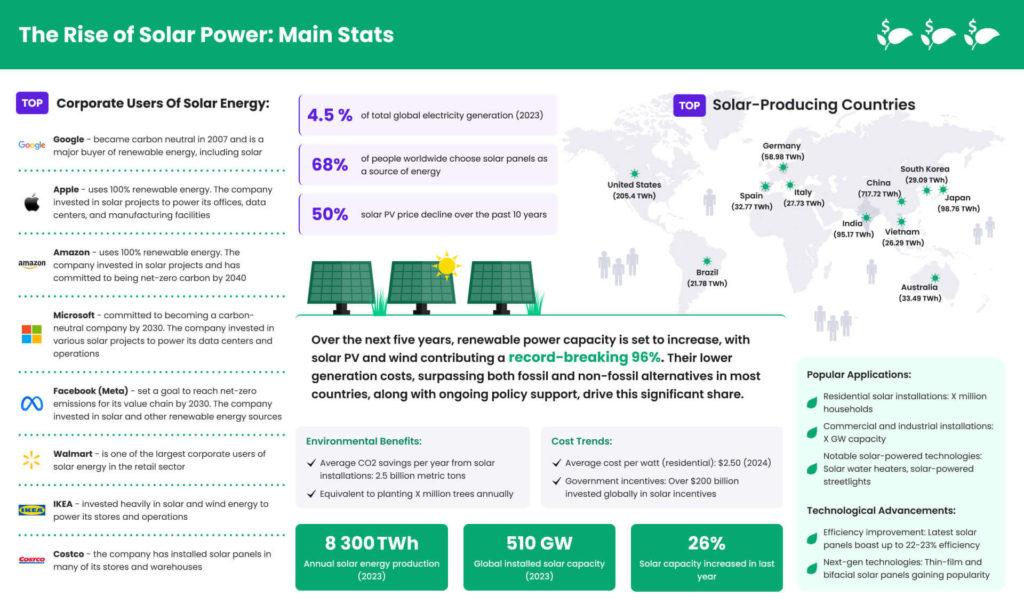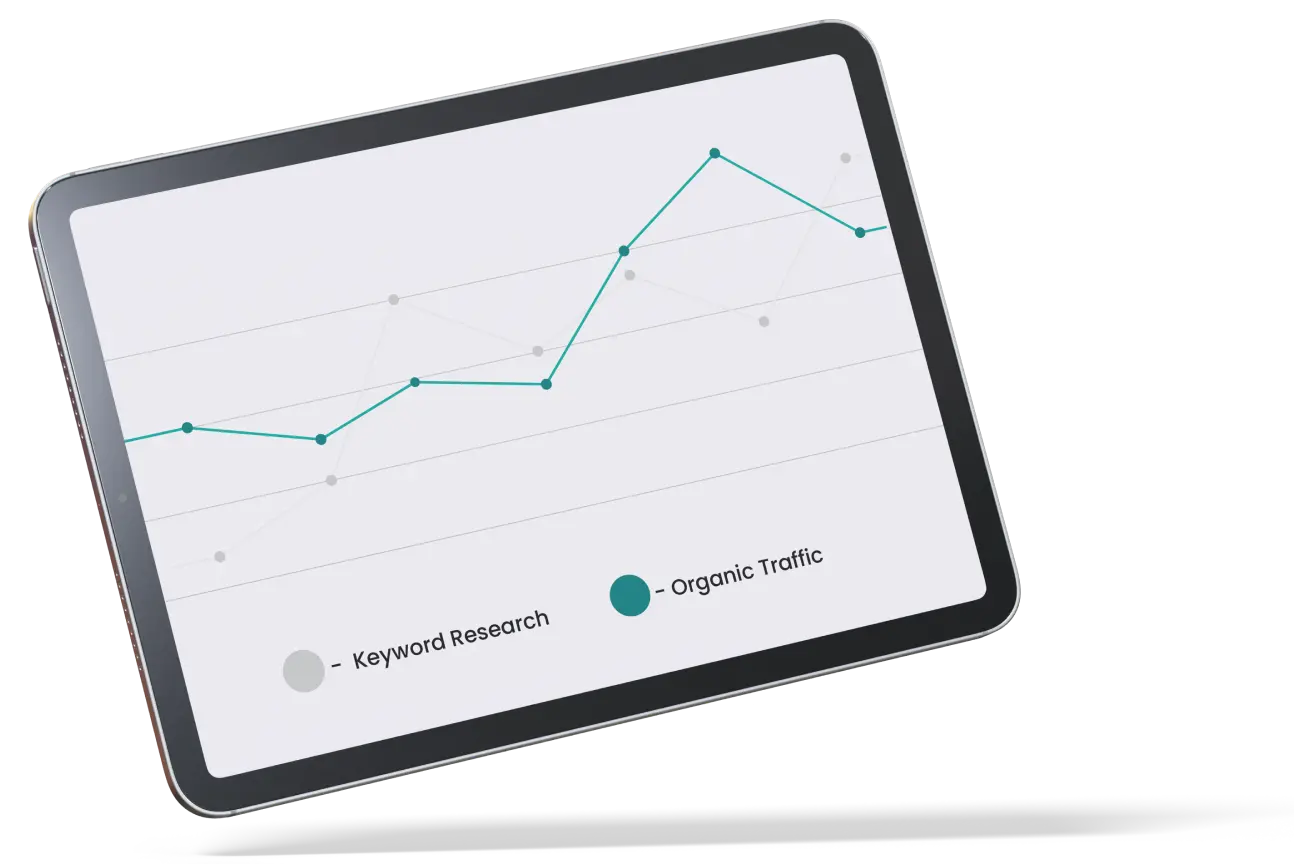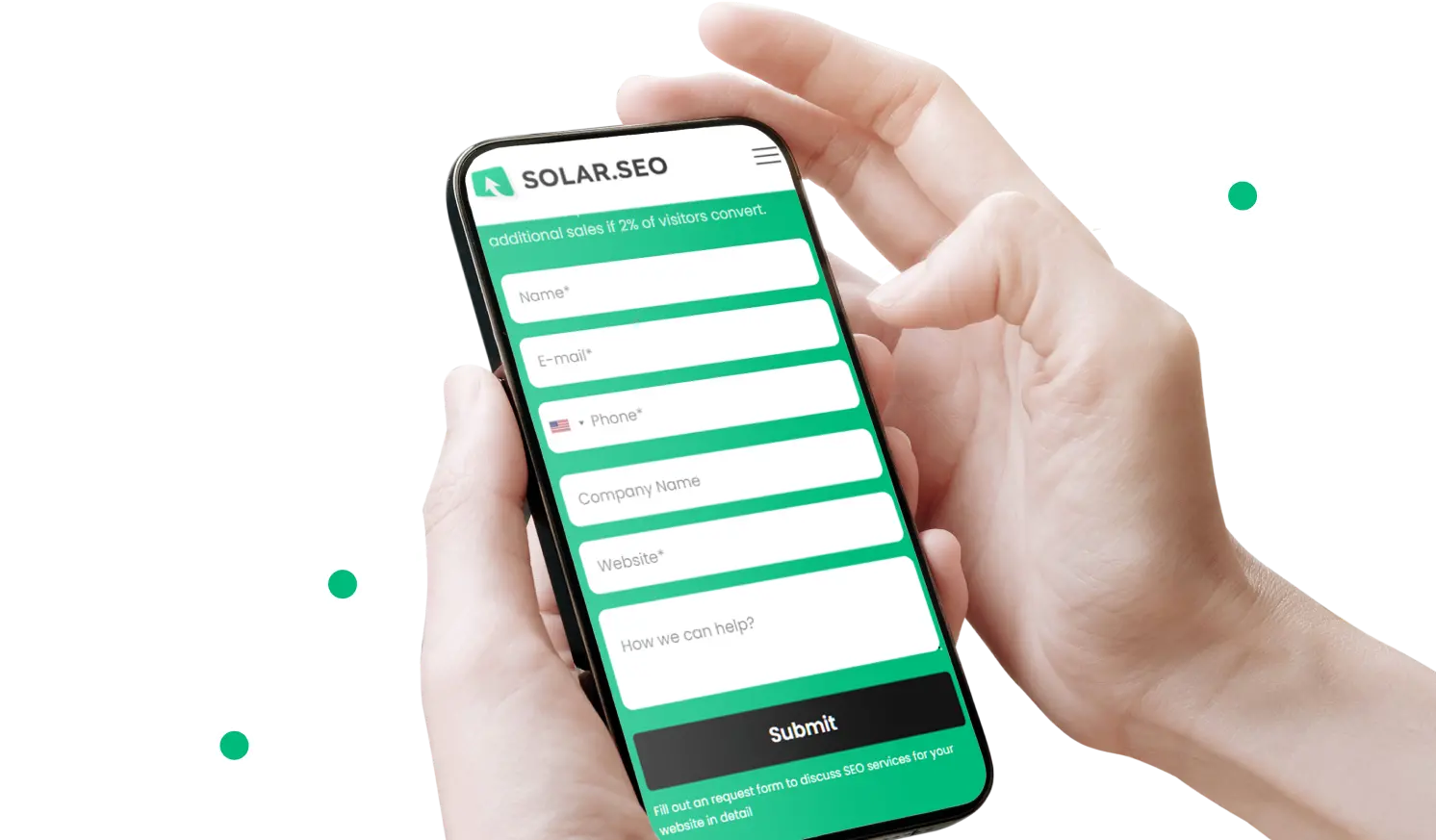Boost Your Sales: How to Sell Solar Panels

Your request has been successfully sent!
Selling solar panels has never been more opportune than it is today. With the growing demand for renewable energy sources and increasing awareness of environmental issues, solar energy is at the forefront of the green revolution. If you’re looking to maximize your profits in the solar industry, understanding the market, identifying your target customers, and employing effective marketing strategies are key. In this blog post, we’ll explore the essential steps on how to sell solar and ensure you capitalize on the booming solar market.
The Growing Demand for Solar Energy
The demand for solar energy is skyrocketing, driven by a combination of environmental awareness, technological advancements, and financial incentives. As concerns about climate change grow, more individuals and businesses are seeking sustainable and renewable energy solutions. Solar energy, being one of the most accessible and cost-effective renewable resources, is leading the way in new electric capacity additions.
In many regions, governments are offering tax credits, rebates, and other incentives to encourage the adoption of solar energy. This not only makes solar power more affordable but also enhances its appeal as a long-term investment. Moreover, as technology advances, the efficiency and reliability of more solar panels continue to improve, making them a more attractive option for a broader range of consumers.

The Rise of Solar Power: Main Stats infographic updated 01/02/2024. All data was sourced from official primary sources: International Energy Agency (IEA), International Renewable Energy Agency (IRENA), and other industry official reports.
Overview of Solar Energy Market Trends
The solar energy market is evolving rapidly. According to industry reports, solar power has consistently been one of the fastest-growing energy sources worldwide. Several key trends are shaping the future of the solar market:
- Decreasing Costs: The cost of solar panels and related technologies has significantly decreased over the past decade, making solar energy more accessible to a wider audience.
- Increased Efficiency: Advances in technology have led to the development of more efficient solar panels, which can generate more power from the same amount of sunlight.
- Energy Storage Solutions: The integration of energy storage systems, such as batteries, allows for better management of solar energy, making it a more reliable and consistent power source.
- Policy Support: Government policies and incentives continue to play a crucial role in promoting the adoption of solar energy.
- Corporate Adoption: Many large corporations are investing in solar energy to reduce their carbon footprint and promote sustainability.
Understanding these trends in selling solar can help you align your sales strategies with market dynamics, ensuring you stay competitive and meet the needs of your customers.
Let’s Start Your Solar Sales Journey
Are you interested in knowing how to sell solar? Starting your solar sales journey involves a strategic approach to identify your target customers, create a compelling value proposition, obtain necessary certifications, and employ effective marketing techniques. Let’s dive into each of these components of selling solar in detail.
Identify Your Target Customers
Identifying your target customers is the first step before you know how to start selling solar panels. Knowing who is most likely to purchase your solar products allows you to tailor your marketing efforts and sales pitch to meet their specific needs.
Residential Solar Buyers
Residential solar buyers are typically homeowners who are looking to reduce their energy bills, increase the value of their property, and contribute to environmental sustainability. They are often motivated by financial savings, energy independence, and environmental consciousness. When targeting residential customers, highlight the long-term savings and potential increase in property value that solar panels can provide.
Commercial Solar Clients
Commercial solar clients include businesses of all sizes that are looking to reduce operational costs, achieve sustainability goals, and enhance their corporate image. These clients are often driven by the financial benefits of reduced energy costs and the positive public relations associated with adopting green energy solutions. For commercial clients, emphasize the return on investment (ROI) and the potential for significant energy cost reductions over time.
Create a Compelling Value Proposition
A compelling value proposition is essential to convincing potential customers of the benefits of your solar products. Your value proposition should clearly communicate how your products solve customer problems and why they should choose your solutions over those of competitors.

Identify Customer Pain Points
Understanding the common challenges and concerns your target audience faces is crucial for selling solar. For residential customers, high electricity bills, environmental impact, and the reliability of the energy supply are often significant concerns. Commercial clients may be more focused on reducing operational costs, achieving sustainability targets, and ensuring a reliable energy source.
Highlight Unique Benefits
Emphasize the unique features of your solar products, such as high efficiency, durability, and advanced technology. For instance, if your solar panels offer superior energy conversion rates or longer lifespans, make sure you highlight these benefits in your marketing materials.
Customization and Flexibility
Discuss how your solar solutions can be tailored to meet the specific needs of residential, commercial, and industrial customers. Highlight any flexible financing options or personalized energy solutions you provide. Offering customization can make your products more appealing to a broader audience, as customers can see how your solar panels will fit into their unique situations.
Certification and Registration for Your Solar Business
Obtaining certification and registration for your solar business is crucial for building credibility, gaining customer trust, and complying with industry regulations. Certification demonstrates that your company meets industry standards for quality and performance. It also reassures customers that they are investing in reliable and professional services.
In many regions, specific certifications are required to sell and install solar panels. These might include licenses for electrical work, certifications from recognized industry bodies, and adherence to local regulations. Ensure that your business complies with all necessary requirements to avoid legal issues and enhance your reputation in the market.
Solar Marketing Techniques
Effective marketing is key to selling solar panels successfully. Here are some techniques to help you reach your target audience and convert leads into customers:
SEO for Selling Solar Panels
Search engine optimization (SEO) is essential for increasing your online visibility and attracting potential customers. As a part of SEO for solar companies, optimize your website for relevant keywords, such as “residential solar panels,” “commercial solar energy solutions,” and “solar installation.” Create high-quality content that addresses common questions and concerns about solar energy, and ensure your website is mobile-friendly and fast-loading.
Content Marketing
Content marketing involves creating and sharing valuable content to attract and engage your target audience. Develop blog posts, videos, infographics, and case studies that provide useful information about solar energy. Address common pain points, explain the benefits of solar power, and showcase success stories from previous customers. Content marketing helps establish your authority in the industry and builds trust with potential clients.
Social Media Marketing
Social media platforms are powerful tools for reaching a broad audience and engaging with potential customers. Create profiles on popular platforms like Facebook, Instagram, LinkedIn, and Twitter. Share informative content, customer testimonials, and updates about your solar products. Use targeted advertising to reach specific demographics and drive traffic to your website.
Events and Sponsorships
Participating in industry events, trade shows, and local community events can help you connect with potential customers and showcase your products. Sponsoring events related to sustainability and renewable energy can also enhance your brand’s visibility and reputation. These opportunities allow you to engage with your audience directly, answer questions, and build relationships that can lead to solar panel sales.
Selling solar panels from home for maximum profit requires a strategic approach that includes understanding market trends, identifying your target customers, creating a compelling value proposition, obtaining the necessary certifications, and employing effective marketing techniques.
By focusing on these key areas, you can position your solar business for success in the growing renewable energy market. Stay informed about industry developments, continually refine your strategies, and always prioritize customer satisfaction to achieve long-term success in the solar industry.
Techniques for Customer Acquisition
Acquiring new customers is crucial for growing your solar business. Here are some effective techniques to attract and convert potential clients:
Customer Testimonials
Customer testimonials are powerful tools for building trust and credibility. Positive feedback from satisfied customers can influence potential buyers by providing social proof of your products’ effectiveness and reliability. Display testimonials prominently on your website, social media platforms, and marketing materials. Video testimonials can be particularly impactful, as they provide a personal and relatable perspective.
Case Studies
Case studies offer in-depth insights into how your solar solutions have benefited previous clients. Highlight specific projects, detailing the challenges faced, solutions provided, and measurable results achieved. Use data and visuals to make your case studies compelling and easy to understand. This not only demonstrates your expertise but also helps potential customers envision the benefits of your products.
Educational Workshops and Webinars
Educational workshops and webinars are excellent ways to engage with your audience and establish yourself as an authority in the solar industry. Offer sessions that cover topics such as the benefits of solar energy, how solar panels work, financing options, and the process of installing solar panels. Providing valuable information helps build trust with potential customers and positions your company as having knowledgeable and reliable solar installers.

Effective Sales Techniques
Once you’ve attracted potential customers, effective sales techniques are essential to convert them into buyers. Tailoring your approach to meet their specific needs and addressing their concerns can significantly improve your conversion rates.
Personalized Sales Pitches
Personalized sales pitches are more likely to resonate with your prospects. Customize your messages to address the specific needs, interests, and pain points of each potential customer. For residential buyers, emphasize long-term savings, environmental benefits, and the increase in property value. For commercial clients, focus on the ROI, operational cost savings, and sustainability goals. Using personalized messages demonstrates that you understand their unique situation and are offering a tailored solution.
Handling Common Objections
Handling objections effectively is crucial to closing sales. Common objections in the solar industry include concerns about the upfront cost, reliability, aesthetics, and technical specifications. Here’s how to address them:
- Cost Savings: Emphasize long-term savings and potential financial incentives, such as tax credits and rebates.
- Reliability: Highlight product warranties, the durability of the solar panels, and any available maintenance services.
- Aesthetics: Offer customization options to ensure the solar panels complement the property’s appearance.
- Technical Specifications: Provide clear explanations about the technology, efficiency, and environmental benefits of your products.
Sales Scripts and Tools
Using sales scripts and tools can streamline your sales process and ensure consistent messaging. Here are some essential components:
- Sales Scripts: Structured conversational guides that salespeople follow during their interactions with prospects. These include key talking points about features, benefits, and responses to common objections. Customizable templates allow for personalization while maintaining a structured approach.
- Sales Tools: Utilize CRM systems like HubSpot, Salesforce, or Zoho Corporation to manage customer relationships and track sales activities. Presentation software such as Pitch or Canva can help create engaging presentations. Proposal generators streamline the creation of professional proposals.
Closing the Deal
Closing the deal is the final step in the sales process. Ensuring that you execute this step smoothly can significantly impact your conversion rates.

Create Attractive Offers
Creating attractive offers can make it easier for potential customers to say yes. Consider offering limited-time discounts, financing options, or bundled services. Highlighting the financial benefits and making the purchase decision easier can help close the deal faster.
Negotiation
Effective negotiation skills are essential for handling objections and negotiating terms to close the deal. Listen to your customers’ concerns, offer solutions, and be prepared to adjust terms within reason. Building a relationship based on trust and mutual benefit can lead to successful negotiations and satisfied customers.
Post-Sale Engagement
Engaging with customers after the sale is crucial for building long-term relationships and encouraging repeat business and referrals.
Encourage Recommendations and Reviews
Encouraging satisfied customers to leave reviews and recommend your services can generate new leads and create a positive online image. Provide incentives for referrals, and make it easy for customers to leave reviews on your website and social media platforms.
Sell Solar Panels Successfully!
Selling solar cells successfully requires a strategic approach, from understanding market trends and identifying target customers to creating compelling value propositions and employing effective marketing techniques. By focusing on these areas, you can position your solar business for success in the growing renewable energy market.
Solar Sales Made Easy with Our SEO Insights!
Simplify your sales process and drive more traffic to your business with Seo.solar comprehensive services for solar companies.

FAQs about Selling Solar Panels
Wondering how to sell solar panels for maximum profit? It involves a combination of market knowledge, customer-focused sales techniques, effective marketing strategies, and post-sale engagement. Staying informed about industry developments, continually refining your approach, and prioritizing customer satisfaction are key to achieving long-term success in the solar industry.
Where to Sell Solar Products and Services
There are several avenues to the best way to sell solar products and services:
- Door-to-Door Sales: Directly approach homeowners and businesses. This traditional method allows for personalized interactions and immediate feedback.
- Online Marketplaces: Utilize platforms like Amazon, eBay, and specialized solar marketplaces. These platforms provide broad exposure and convenience for customers to compare options.
- Retail Partnerships: Partner with home improvement stores and electronics retailers. These partnerships can expand your reach and provide a physical location for customers to learn about and purchase your products.
- Trade Shows and Industry Events: Showcase your products and network with potential customers and partners. These events are excellent opportunities to demonstrate your products and engage with a targeted audience.
- Government and Municipal Contracts: Bid for government and municipal projects. These contracts can provide substantial revenue and enhance your company’s reputation.
- Referrals and Word of Mouth: Leverage satisfied customers to generate new leads through referrals. Word-of-mouth recommendations are highly trusted and can significantly boost your sales.
Do You Need a License to Sell Solar Panels?
Yes, in many regions, you need a license to sell and install solar panels. This ensures compliance with local regulations and industry standards, building credibility and trust with customers.
How Much Can You Make Selling Solar?
Earnings in the solar industry can vary widely based on factors such as market demand, pricing strategies, and sales volume. On average, solar sales representatives can earn a substantial income, with commissions often contributing significantly to overall earnings. The potential for high earnings is particularly strong in regions with high demand for renewable energy solutions.
Selling solar cells can be a highly profitable business venture, especially as the demand for clean, renewable energy continues to grow. By understanding the market, effectively reaching and engaging with your target customers, and utilizing proven sales techniques, you can maximize your profits and contribute to a more sustainable future.





